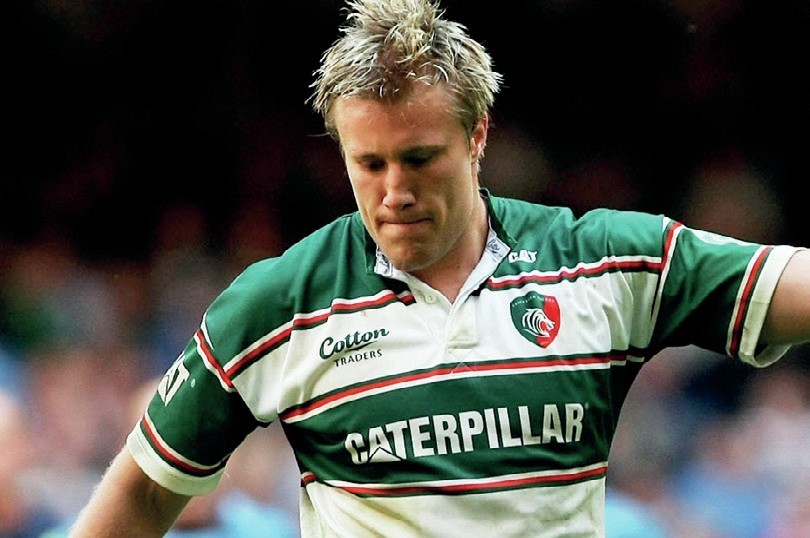The day Crane had final word at Cardiff

86358430
PETER JACKSON
THE MAN TRULY IN THE KNOW
The Millennium Stadium once staged a trio of penalty shoot-outs in four years as fondly remembered by disciples of Arsenal, Liverpool and Leicester Tigers.
A stylish Frenchman had won the first for the Gunners and a Viking renowned for firing cannonballs clinched the second for The Reds 12 months later only for their feats to be matched by an England No.8 who began his footballing life in the West Bromwich Albion under-14s.
Until the other day, Jordan Crane had been blissfully unaware that in the folklore of Cardiff ‘s unique city-centre stadium, he stands alongside Patrick Vieira and John Arne Riise, FA Cup winners who compiled more than a century of caps for France and Norway respectively.
“I never thought I’d be in such good company,” says Crane who made three appearances in the England back row starting against the Springboks at Twickenham in autumn 2008 and finishing there against Australia 12 months later.
“My son (Hunter) will be very happy to know about the football connection, especially as he’s just signed for Bristol City under-9s. So will my older brother Daniel who retired recently after a long career in professional football as a goalkeeper.”
For those on the other side of the Severn, Jordan Crane’s name sounds like a bell tolling for the demise of Welsh teams as serious contenders for Europe’s blue riband trophy, rebranded as the Champions Cup but still recognised on a wider scale by its title sponsor, Heineken.
On May 3, 2009, Cardiff and Leicester staged a 100-minute humdinger for the right to meet Leinster in the final later that month at Murrayfield. Finishing level on points (26-26) after extra-time and level on tries (2-2) meant they would have to go where no British clubs had gone before.
With everyone taking aim from the same spot on the 22m line in front of the posts, Tigers won 7-6, ironically so given that Crane had spent his formative years happy all day long to see penalty shots balloon over the bar the way his ballooned over Cardiff ‘s.
It may provide high drama in football but the rugby version left everyone of the opinion that there had to be a better way, including the winning captain, Geordan Murphy. Leicester’s distinguished Irish Lion described it as ‘a horrid way to lose and not really a fabulous way to win’.
During the 15 years since, no Welsh team has ever come as close to the final as Cardiff did then. That they had the players worthy of winning the trophy – Leigh Halfpenny, Tom Shanklin, Jamie Roberts, Tom James, Gethin Jenkins, Taufa’ao Filise, Paul Tito, Martyn Williams to name but some – made the result all the harder to bear.
Since then only once has any of the four Welsh regions gone as far as the semi-final, Scarlets seven years ago when, like so many others, they finished a distant second to Leinster in Dublin.
That Welsh teams have qualified for the quarter-finals only twice in the last 15 seasons makes their demise as a force in Europe all the more risible. Ospreys got to the last eight only to lose unluckily by a single point to Biarritz in San Sebastian.
There was nothing unlucky about Cardiff ‘s fate at the same stage two years later when Leinster routed them 34-3. The capital club’s repeated failure to make the starting grid since then tells a grim tale of their deterioration following their penalty ordeal as witnessed by a crowd of almost 45,000.
The Round of 16 weekend provides a further stark reminder of how not a single Welsh team has got that far again for the sixth season in a row. Somehow the hard times feel harder in Wales than elsewhere, hence no meaningful sign of that run ending next season.
Across the border in the English Premiership, nobody involved in a competition that lost almost onethird of its clubs last season can take any pleasure from the collective Welsh problem, least of all Crane. As defence coach of Bristol Bears, he catches the mood from the other side of the Severn.
“We need all the Welsh teams to be firing on all cylinders,” he says. “We need the competition. That’s why it would be great to see them back.
“I played for Leicester at a time when we had some great matches against the Ospreys. I remember how good the Scarlets were, especially when Phil Davies was the head coach and some of the tries they created were just incredible.
“The semi-final at the Millennium was a great game of rugby. That was an excellent Cardiff team. You’ve only got to look at their players and what they achieved to realise how good they were.
“We played 80 minutes, then 20 more. After that we were wondering: ‘What’s next? Do we play on for a Golden Score? No, it’s a penalty shoot-out’.
“In training that week, nobody had practised taking shots other than the regular goalkickers. As a footballer before I played rugby, I’d always been kicking a ball around but all my experience of penalties were trying to stop them, not take them.
“Believe me, those posts at the Millennium that day suddenly looked small when it came to my turn. Luckily for me it went over. We all gave the Cardiff boys our condolences knowing it could just as easily have been us in that same tough situation.”
As the last 16 took centre stage, Cardiff could only stand and watch, a default position which has all too often become an annual non-event. It’s been that way now at the Arms Park since their last quarter-final 12 long seasons ago.